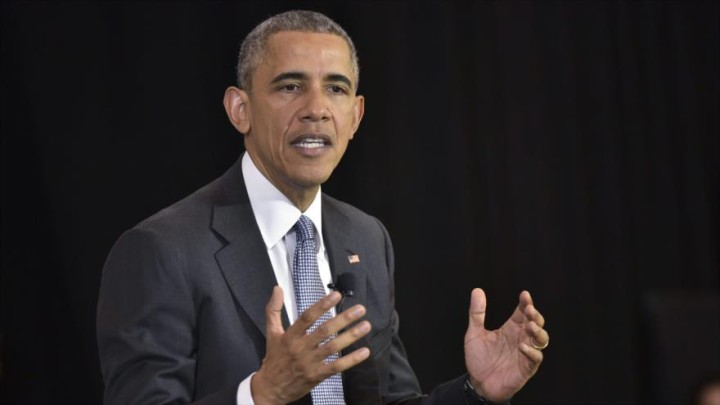The US president’s press secretary today confirmed what many observers had been speculating for several weeks now, that Barack Obama will be the first serving US president to visit the site of one of the nastiest scars on humanity’s conscience: Hiroshima, the first city to experience the force of a nuclear bomb.
The move follows his Secretary of State, John Kerry’s visit in April during a meeting of G7 Foreign Ministers.
Unfortunately for the survivors and all those in favour of global peace and reconciliation there is to be no apology for the destruction that caused up to 140,000 deaths: a figure that continues to rise as survivors and their descendants suffer from radiation-induced illnesses.
The US government maintains that the nuclear bomb dropped on Hiroshima was essential for bringing an end to the Second World War, an argument that is disputed by many historians, and eloquently so in the book by the US author Ward Wilson, “The Five Myths of Nuclear Weapons”, in which he explains how the USSR’s entry to the war is a much more obvious and decisive explanation for Japan’s surrender.
Obama’s spokesperson tweeted that the president, in his joint visit with the Japanese Prime Minister Shinzo Abe would, “not revisit the decision to use the atomic bomb… Instead he will offer a forward-looking vision focused on our shared future.”
We will have to wait to find out what this means precisely.
The refusal to learn from history and acknowledge the humanitarian horror of nuclear weapons and to recognise their uselessness in global security doctrines is not being welcomed by anti-nuclear campaigners.
The Peace and Planet campaign which has gathered together dozens of anti-nuclear and pro-environment groups around the world has called for the president to meet with the bomb survivors and hear their experiences in their own words. They also call for him to not go empty-handed but instead to go with serious proposals for taking forward nuclear disarmament.
It is in this context that the hypocrisy of the United States becomes evident because while the announcement of this visit was being made, dozens of nations were convening in Geneva to advance in what legal measures can be taken towards nuclear disarmament. This meeting, mandated by the UN General Assembly last year has faced stiff opposition from the USA and other nuclear-armed states every step of the way.
The key proposal emerging from these meetings, that are due to finish in August, is a treaty to ban the use, possession, transport, financing, etc., of nuclear weapons. Despite not having any support from nuclear-armed states and their allies in “nuclear sharing” agreements such as NATO countries, such a move seems to have quite grabbed the imagination of the non-nuclear-armed states and all indications are that they are determined to move ahead with such a treaty.
Country after country at these nuclear talks is saying that 70 years is too long to wait to make these weapons illegal, and that the existing international legal framework is not strong enough to bring about disarmament. 127 countries have endorsed an Austrian statement, known as the Humanitarian Pledge, calling for countries to fill this legal gap and negotiate a nuclear weapon ban treaty.
Eight years ago Obama brought so much hope into the world. His “yes we can” attitude inspired millions and his Prague Speech seeking an end to nuclear weapons was seen as the turning of a page in history. It even led to his Nobel Peace Prize.
Yet we have since seen that Obama’s fine words have turned into: increased tension with Russia as NATO continues expanding and militarising its eastern European borders, a nuclear-weapon modernisation programme that is planned to cost 1 trillion dollars over the next 30 years, a refusal to engage with Russia and China on a treaty to ban weapons in space, a belligerent attitude in the Middle East with indiscriminate killings of thousands of civilians through the use of unmanned drones, a foreign policy towards Saudi Arabia that has led to the creation of Islamic State, the war in Syria and a refugee crisis in Europe unseen since the Second World War.
As much as we may admire Obama’s words on racial matters from his moral position as the first African-American president, as much as we may appreciate his efforts to provide universal health care in the USA, and as much as we may appreciate his moves to normalise relations with Cuba, History may well not look kindly on this president.
Having said in Prague, “as the only nuclear power to have used a nuclear weapon, the United States has a moral responsibility to act,” the lack of action in the last eight years to advance in any significant measures for global nuclear disarmament leaves Obama looking decidedly immoral.






